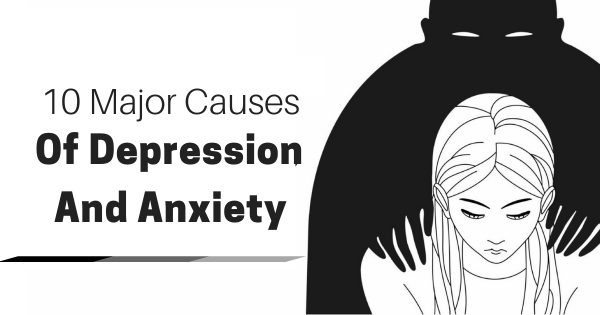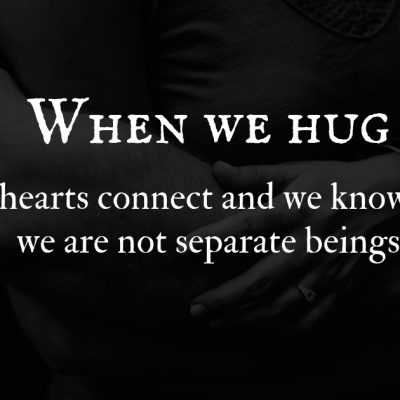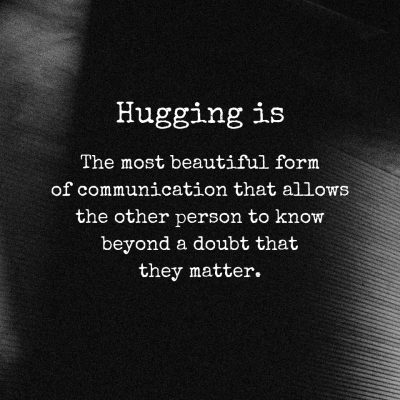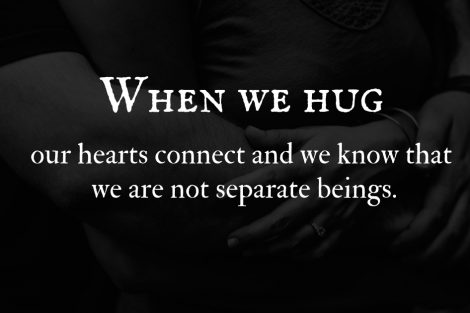Although more and more people are suffering from depression and anxiety these days, the causes may differ. Knowing what exactly triggers your depressive or anxiety episodes can help you understand better your condition. And understanding is the first step towards alleviating the problem and preventing you from other episodes. So here are the 10 major causes of depression and anxiety:
 1. Genetics
1. Genetics
The one thing you can never run away from is your DNA. Some of us are just biologically predisposed to mental health issues. So chances are that if you have a history of depression or anxiety in your family, you are more likely to develop it too.
2. Brain chemistry imbalance
Researchers believed for a long time that depression and anxiety were caused by imbalances in the neurotransmitters which are involved in mood regulation. Now we know that this is not the only cause as many antidepressants which are supposed to correct this type of imbalance simply don’t work.
MORE: 10 Weird Habits Of People With Concealed Depression
3. Poor diet
Nutrition is essential when it comes to our physical as well as mental well-being. Poor diet can affect our moods in several ways. First of all, there are a variety of vitamin and mineral deficiencies that can cause symptoms of depression (like vitamin D or vitamin B12 deficiencies). Moreover, diets high in sugar and carbs have been associated with depression whereas caffeine is associated with anxiety.
4. Substance abuse
Drugs and alcohol definitely contribute to poor mental health. Whether illegal or prescribed, many drugs could cause or worsen symptoms of depression or anxiety. They may alter the brain’s neurochemistry in negative ways. That’s why it’s better to consult with your doctor before taking any medication. If you are dealing with addiction, reaching out for support is highly recommended.
MORE: 9 Major Effects Anxiety Has On Your Body
5. Stress
Stress has become so ingrained in our everyday life that we have stopped considering its serious implications. Stress can wreak havoc on our minds and bodies. When too much is going on around you, on multiple levels, you risk to become physically and mentally exhausted due to rise of cortisol in your brain.
6. Traumatic events
Trauma pushes our brain to a maximum point of stress. Experiencing an extremely stressful event will force us to use all our coping resources which can cause a lot of damage.
7. Dramatic changes
 We all go through life-altering events, like losing a job, moving out, dealing with divorce or a financial crisis, to mention a few. Our brain usually interprets change as stress – that may be why we cling to daily routines and habits. As soon as we are face to face with a major change, we may develop feelings of anxiety or depression. It’s one way our bodies will react to such events.
We all go through life-altering events, like losing a job, moving out, dealing with divorce or a financial crisis, to mention a few. Our brain usually interprets change as stress – that may be why we cling to daily routines and habits. As soon as we are face to face with a major change, we may develop feelings of anxiety or depression. It’s one way our bodies will react to such events.
MORE: 10 Warning Signs Of Bipolar Disorder
8. Grief and loss
Losing a loved one may leave us feeling devastated. Whether it’s due to death, divorce, breakup or losing a friend, emotional turmoil will ensue for most people. And some will even develop symptoms of depression like hopelessness, loss of appetite, insomnia or excessive sleeping. This response is the body’s coping mechanism.
9. Isolation
As introverted as some of us may be, we are not wired to live in complete seclusion. We are social beings who need other people to thrive and be healthy and happy. Moreover, when depressed, we tend to isolate ourselves and push others away, which will, in turn, worsen the symptoms.
10. Physical health problems
Our minds and bodies are interlinked. This is why if your physical health deteriorates, you will start experiencing mild symptoms of depression as well. There are certain conditions such as cancer, Alzheimer’s disease, Addison;s disease or thyroid disorder that may trigger a major depressive episode.










